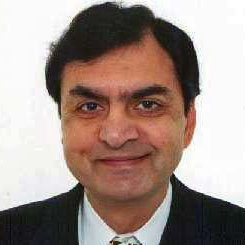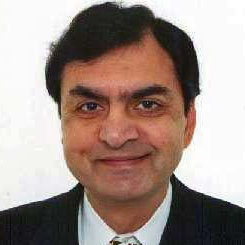'Dr. Doom' optimistic about U.S. economy
SMU economist Ravi Batra, usually pessimistic about the country's financial future, says there is hope in the long-term outlook.

What should the average American do to protect his or her assets in the current economy? How will the chaos on Wall Street affect political change in Washington? New America Media interviewed Dr. Ravi Batra, a.k.a. 'Dr. Doom,' about what the current economic upheaval means for the country. Batra is a professor of economics at Southern Methodist University, Dallas, and the author of five international best sellers. His latest book is: "The New Golden Age: The Coming Revolution against Political Corruption and Economic Chaos."
 Professor Ravi Batra |
Wall Street is getting battered, the U.S. housing market is in shambles, gas prices are spiking and the unemployment rate is high. Yet you say you are 'optimistic' that within a couple of years, things will turn around. Does this mean you will have to give up your nickname as 'Dr. Doom'?
I have always been optimistic at heart, but only for the long run. That long run has now arrived.
John McCain was recently criticized for saying the fundamentals of the U.S. economy were strong, and he later revised this statement. What does it mean when people talk about the fundamentals of an economy?
The true fundamentals of an economy are wages relative to productivity. People call them supply and demand. Productivity is the main source of national supply, while wages are the main source of national demand. So wages must rise as fast as productivity to maintain supply-demand balance.
How weak do you think the fundamentals of the U.S. economy actually are?
At this point these fundamentals are in the worst shape in 30 years, because ever since 1981, wages have stagnated even as productivity soars. So now we have the largest wage-productivity gap in U.S. history, even greater than the one prevailing in 1929. The potential for a catastrophe is very, very strong, because there is excessive global production relative to demand.
This being a global economy, the domino effect is already being seen outside the United States. What is the effect of the U.S. economic downturn going to be on the Asian 'tigers,' including India and China, which hold so much of our debt?
The domino effect has been very small so far. Only share markets have felt it around the globe. The really bad effect will come in 2009, with rising joblessness, layoffs and bankruptcies. Gold is likely to soar, with the dollar collapsing at the same time.
How worried should the man on the street be?
The man in the street should be very worried, because in the end it is official corruption that creates the wage-productivity gap and hence the potential for economic collapse. Today, corruption is high all over the world.
A 22-year-old in our office is about to take his money out of Washington Mutual. Is he being foolish or careful?
Your office friend should not worry about his money in Washington Mutual, because it is insured up to $100,000. He should worry more about his job.
Should people continue to put money aside in retirement funds if they are disappearing slowly?
Retirement accounts like 401Ks kept with a bank are insured by the FDIC up to $250,000. People should continue to put money in their 401K, but not invest it in stocks. I am going to shift my own 401K to a bank and buy CDs with it.
Will high unemployment and competition for low-wage jobs make undocumented immigrant workers obsolete?
The low-wage jobs and high joblessness in America will indeed discourage immigration, but it will not be of any help to Americans because of the weak economy.
Who do you think is better at handling the economy – Barack Obama or John McCain?
I am an independent and in the past have voted for the Democrats, Republicans and independents. This time I will vote for Obama because his policies will reduce the wage-productivity gap that is incredibly high today. The minimum wage has to rise sharply, though over a few years, to eliminate the crisis.
What effect do you think the current economic crisis will have on long-term political and social change in the United States?
In the late 1970s, I wrote two books. In one I predicted the fall of Soviet communism by the end of the century; in the other I predicted the rise of priesthood in Iran by 1980. This is my record as for as predicting revolutions is concerned.
In my latest book, I am forecasting another revolution, this time in the United States, but only after a few years of economic chaos. Mr. Obama represents the revolution I predict, and the current jitters represent the economic chaos. I think the revolution will start in 2009, and take seven years to complete. The economic chaos will last perhaps till 2012.
What safeguards should people take to protect their assets?
Save money. Get out of credit card debt. Buy some Euros in the form of a Euro ETF like FXE. Buy gold, preferably gold shares while selling call options on them at the same time, so that you do not lose too much money in the short run, just in case an already high gold price falls. Long-term bank CDs are fine, and in case the interest rate rises, you can pay a small penalty on the CD and switch into the high yield. I plan to stay away from real estate, and not switch jobs, because that could cost me seniority, which could be useful in retaining my current job.
# # #